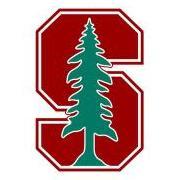-
Posts
142 -
Joined
-
Last visited
Profile Information
-
Gender
Not Telling
-
Location
New York City
-
Program
Political Science
Recent Profile Visitors
4,195 profile views
Max Power's Achievements

Double Shot (5/10)
46
Reputation
-
 Do_EE reacted to a post in a topic:
Familiar with Columbia QMSS?
Do_EE reacted to a post in a topic:
Familiar with Columbia QMSS?
-
 greenlover45 reacted to a post in a topic:
The sub-3.0 GPAs ACCEPTANCE thread
greenlover45 reacted to a post in a topic:
The sub-3.0 GPAs ACCEPTANCE thread
-
 perfectionist reacted to a post in a topic:
The sub-3.0 GPAs ACCEPTANCE thread
perfectionist reacted to a post in a topic:
The sub-3.0 GPAs ACCEPTANCE thread
-
 Gradhorn reacted to a post in a topic:
Welcome to the 2012-2013 cycle
Gradhorn reacted to a post in a topic:
Welcome to the 2012-2013 cycle
-
 kaykaykay reacted to a post in a topic:
Welcome to the 2012-2013 cycle
kaykaykay reacted to a post in a topic:
Welcome to the 2012-2013 cycle
-
I'll chime in another vote from a current grad student for not worrying about contacting profs. If you want to know if your numbers make you competitive, there are admin staff who can answer that. But I can pretty much tell you how an email to my advisor would go. I assume that he'd reply (there's a decent chance he wouldn't, but he's generally no less than polite given the alternatives). His reply would be 2-3 sentences saying that he's glad you are interested and he thinks you should apply (unless there was something in your email that made him think you had zero probability of being selected by the admissions committee). Then, he'd completely forget everything about it because he's not on the admissions committee.
-
 CNU2PSU2Unknown reacted to a post in a topic:
Welcome to the 2012-2013 cycle
CNU2PSU2Unknown reacted to a post in a topic:
Welcome to the 2012-2013 cycle
-
 mutatismutandis reacted to a post in a topic:
Welcome to the 2012-2013 cycle
mutatismutandis reacted to a post in a topic:
Welcome to the 2012-2013 cycle
-
 RWBG reacted to a post in a topic:
Welcome to the 2012-2013 cycle
RWBG reacted to a post in a topic:
Welcome to the 2012-2013 cycle
-
I'll also throw out that its a less operative concept at this level. I got rejected last year by several schools that I thought I was at least a very strong candidate for and got accepted a couple of times by places that I thought I was a longshot for at best. Lining up my acceptances and rejections tells a pretty incoherent story
-
 Tupamaros reacted to a post in a topic:
Welcome to the 2012-2013 cycle
Tupamaros reacted to a post in a topic:
Welcome to the 2012-2013 cycle
-
 PoliSwede reacted to a post in a topic:
Welcome to the 2012-2013 cycle
PoliSwede reacted to a post in a topic:
Welcome to the 2012-2013 cycle
-
Sorry, but I don't believe this at all and everyone waiting on Columbia should take a deep breath. Columbia's classes don't even start until tomorrow, which means a lot of the faculty haven't been on campus since the middle of December. There is literally no chance that the admissions committee has had more than a very preliminary meeting yet, and no way they had time to review the ~500 applications they get each year. Also, Columbia admissions offers come through GSAS and not the department, so any offer they are going to make has to clear an extra level of bureaucracy before it goes out
-
At my undergrad school, GPAs were .5 lower for math/science/engineering majors than or all other majors. I am more than willing to assume that this is closer to the rule than the exception and that the people reading packets know this. Also, you said you go to a top school. This means that admissions committees are far more likely to have encountered other applicants from your school in the past and be familiar with the norms of GPA there. If you get really nervous about this, you can always ask one of your letter writers to mention something so you don't have to spend any space in your SOP on it, which is both a waste of valuable words when trying to come in under limits and probably an awkward transition.
-
For what its worth, Columbia isn't yet operating at full capacity. I have family on the faculty and they don't start their semester until next week
-
My recollection is that last year Wisconsin did an early round of admits and Michigan did everything pretty early, then it all sort of trickled out with most places being wrapped up by mid-to-late February.
-
As a rule of thumb, adcoms will not hold things against you that you cannot control. If everything else is in order and your other letters are in and it appears that by any reasonable standard you did everything in a timely manner and the writer hasn't finished the letter yet, they will understand. They are also profs going through standard end of semester insanity. They aren't going to toss an application where you did everything right.
-

Joint MA/JD for 45 year old returning student
Max Power replied to Bobnoxious's topic in Political Science Forum
I remain oddly impressed by SOG's multi-year commitment to being so insanely wrong -
Easily. Your research statement and application will be higher variance than most other people, but also possibly higher mean. You will hurt your chances at some schools but raise your chances by an even bigger factor at others. Some members of admissions committees will read it and think its out there. You will not get into those schools. However, it will speak to some people who agree with your vision. You will have an extremely good shot at getting into those schools because your application will be unique and have a strong advocate. The downside to this is that you may want to apply to a few extra schools because there is no way to know which schools will have admissions committee members who will like what you are selling and which will not.
-
Short answer: yes, you can certainly overcome the holes in your application. focus your statement strongly on research and show that you can ask an interesting and relevant question. if you have a letter writer or two who can speak to the fact that you are clearly not the same person who who got those undergrad grades, that should be sufficient. it will sound way better coming from them than it will from you, plus it will just eat into your already limited word count on your research statement. Your story and interests sound incredibly similar to mine. I had some rough years from 18-20 both academically and personally. I spent 5 years in political consulting, did an MA and had a very successful go of applying last time around. If you want, you can PM me and I'll share more details
-
Masters programs are usually easier to get into precisely because they are not funded. I also come from the social sciences so ymmv
-
You can pretty much calculate your program's attrition rate by counting the average incoming cohort size and counting how many people graduate each year. All the people on different time frames across cohorts should reasonably cancel each other out. As Eigen said, there are several kinds of attrition. As programs get more selective, the failing out becomes a smaller part of it. They have high quality students coming in who are less likely to fail. There's no accounting for why people may decide to leave at other points or drift off ABD. Some people leave because they have a change of heart about academia. A lot of people arrive in grad school with only a vague idea of what an academic career is about. Some drift off ABD because they never learned how to be self directed in tasks and don't do well without having faculty members hand down assignments and prompts.
-
It often means taking a year in between while applying. My the ways that QMSS helped me were that 1) I got fresh grades to offset my undergrad ones 2) I got letters great letters from QMSS 3) I honed my research interests 4) I used a seminar paper that I wrote as my writing sample for my applications




